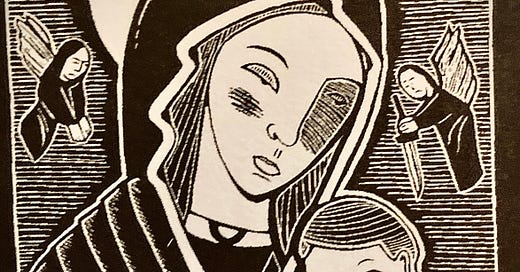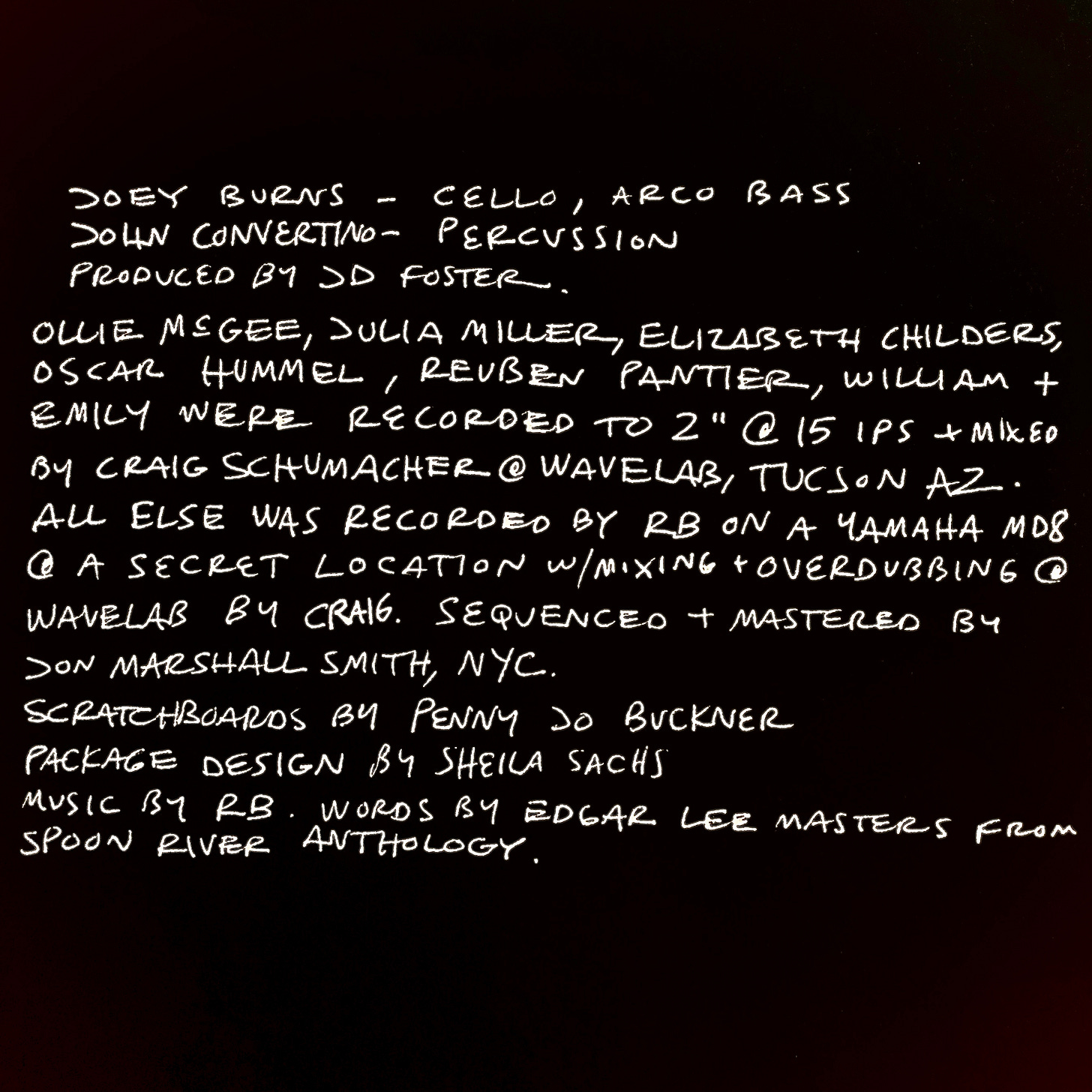
It was 1998: the contrary period between my album, Since, being contractually released by MCA & physically buried, partially in the form of hundreds of actual copies about to be tossed in a Universal Studios dumpster in Hollywood. An obliging intern at the company contacted me with news that they'd pulled aside a box of my stock from the trash pad & offered to send my way. The recycled merch arrived fresh as a daisy, so I sold them at shows with a clean conscious — I considered it inadvertent tour support. If you bought one during that go-around, you were a part of planting a smaller footprint up the ass of a major label. Thank you, then & now, for your unbeknownst consumer activism.
In spite of nothing, when I was personally tossed from the label as well, the announcement came as a no-shocker. Aside our quarrelsome interactions, I'd already assumed that if it didn't happen by mere kismet, it certainly would when they received the eighteen-piece, one-track song cycle of Spoon River Anthology poems that I was in the midst of creating — an anticipatory one-sided win-win kiss-off. Subtle guerrilla sabotage is also a fine art.
Earlier, the label had sent me just enough funding for one day in a studio to record demos for their unintended optional third release. I used the unrecoupable to purchase an eight-track mini-disc recorder, instead, which I've been using through the years since. Thus, once again, they were unwittingly supportive & everyone got away by screwing someone else over — it's Business 101, inbred in corporate nature. A round of touché!s for all!
I had rented a workspace in a defunct medical facility in Edmonton AB, where I was sedately living it up at the time. The compact room was the size of a walk-in medicine cabinet. I had an ART tube preamp, a Shure SM58 mic &, along with a few standard musical instruments, a Boss SP202 Dr Sample — a cheap, portable sampling device used by club DJs & dance music designers on a budget. I used it as a 16-bit metronome where I could tap its rubbery buttons to calculate a beat & the good doctor would deliver a lo-fi heartbeat-like loop.
In 1999, my demos & I drove down to Wavelab Studio in Tucson to meet up for five days with engineer Craig Schumacher, producer JD Foster & musicians John Convertino & Joey Burns. Having worked with the same cast on 1996's Devotion & Doubt, I knew what they were capable of crafting. Technically, it was a shoe-in, but as my disposition characteristically leads, I wanted to step out of convention — especially my own. Unlimited evolution comes from slight variations, so I inherently select, in all things, to amend the laws of second nature.
For this assignment, I proposed a loose instruction to diversify the go-to: as in go to where a remarkable rhythm section lives & compel them from assembling with their well-established drum kit & bass rig. John would only use parts of his kit, disbanded around the main recording room, along with other converted percussion devices, & Joey would arco a double bass or bow a cello in glassy isolation. I knew it wouldn't be a stretch for them. At our previous session, John had bowed a vibraphone & Joey had thrummed his low-end on the headstock — gratefully, second nature isn't necessarily their first instinct.
We kept the bones of the home-hewn instrumental songs intact & merely tightened them up for fidelity & individual track time, with additional overdubs by J & J & JD. As a broader impression of the body began to emerge, I ended up subtracting from my over-frilled arrangements of the sung selections to suit the unfolding mood of the whole. A comparison of the album version of Elizabeth Childers to my demo-stab proves the limitless precision of these aces, given whatever criterion is thrown at them. The contributions of all participants, including the seamless sequencing & mastering of Jon Marshall Smith as a final touch, allowed me to privately progress on terms met by their openness.
The take of Elizabeth Childers (which I offer below, at the end of this post) is one of two pre-Tucson demos that I cooked up in that Canadian examination room. I chose this one in particular because the general essence differs most from the album selection & explains why I didn't pursue this direction as a final track:
1. The chug & jangle of the electric guitars, conjured at this writing with a foot atop a front stage monitor, too-happily misrepresent the tone of the poem.
2. Though I'm sure the beat was left in to personify a human pulse, this example has Dr Sample unabashedly thumping like a mixed-up nineties dance clubber just following implied orders to "Putcha hands together people! Let's take it home!"
3. Lastly, important to me anyway, is that I mis-sang the eighth line of the poem, trading "'cause you've never traveled" with "For you never traveled." Had we stuck with this rendition, I could've easily enough re-sung, but we moved on. My foremost aim from the outset of this project was to transplant the text exactly. The singsong already takes liberties with the penned punctuation as a function of arrangement, but misquoting was a step too far in my book.
All said, since retrieving these reference mixes a few months ago from my upstairs heap, they've also taken me aback to scenes of other, unassociated, personal attempts as if stumbling upon a soul-splattered mirror. It leaves me reappearing tightly wound & running loose, randomly sorting through a guitar caseload of open options, musical & otherwise.







